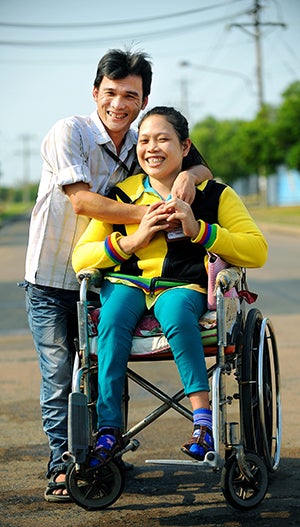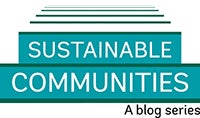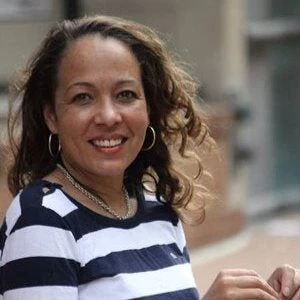
One of the statements that has stayed with me from the event was from Victor Pineda, President of World Enabled. He said: “Disability does not discriminate. Each and every one could, at any point, fall into disability. It’s the only minority group that everybody can join” We are an accident away to join a group that is commonly excluded by societies around the world.
Fortunately, the development community has begun to realize the critical role of exclusion, and in particular exclusion of people with disabilities. This has been a year of fundamental change for the recognition of peoples with disabilities in the development agenda through the Sustainable Development Goals (SDGs).
The Post-2015 Development Agenda clearly states that disability cannot be a reason or criteria for lack of access to development programs. The new framework is audacious. It unequivocally bolsters equal opportunities for persons with disabilities in access to education, vocational training, jobs, transportation, public spaces, human settlements, and political life.
The SDGs include seven targets that explicitly refer to persons with disabilities; and six further targets on persons in vulnerable situations, which include persons with disabilities.
These targets alongside the Convention on the Rights of Persons with Disabilities, now ratified by 160 countries provide both the moral imperative and clear milestones to ensure that persons with disabilities can fully participate in and benefit from poverty reduction and development efforts.
Our research in the World Bank shows the many ways in which persons with disabilities are ignored, stereotyped, and stigmatized in the countries where we work. The rising attention to issues of social inclusion is based on the realization that, while great strides have been made in reducing extreme poverty, in country after country, entire groups remain excluded from development gains.
Our social inclusion flagship report – Inclusion Matters – highlights the importance of societies to provide the ability and the opportunity to excluded populations to access services, markets, and spaces. Furthermore, our research shows that without a sense of dignity, providing the ability and opportunity to excluded populations is not enough to achieve a transformation of their well-being.
Eliminating exclusion is not only the right thing to do, it is beneficial to economies. Inclusion of persons with disability can reduce or even eliminate many important costs to society:
- Between 15% to 20% of the world’s population have a disability; 80% live in developing countries; 80% live in poverty; and ongoing conflict, natural and man-made disasters, inequities in food distribution and nutrition, migration- all contribute to increase the prevalence of disability.
- While on a more positive note, our lifespans have increased, this also means that a higher aging population will add to individuals with disabilities. Individuals with disabilities face higher rates of poverty as compared to persons without disabilities.
- Estimates suggest that 1/3 of children out of school have disabilities, and the rates of school attendance and completion of children with disabilities are 40%-60% lower than children without disabilities, especially in low and middle income countries.
- The employment rates of persons with disabilities are 1/3 to 1/2 the rates for persons without disabilities in developed and developing economies, and there are wage disparities between persons with and without disabilities.
- The lower rates of economic and labor market participation, in turn, impose a higher welfare burden on governments, and recent figures show that existing social protection schemes in many countries fail to appropriately respond to the needs of persons with disabilities.
What can be done? In partnership with countries around the world, we have supported many good examples of effective disability-inclusive practices and innovative solutions in place. These include projects on access to education, transportation, social protection, influencing policies and institutional development. They are based on cost-effective solution to inclusion of people with disabilities. Change is possible!
But much still needs to be done. We need to collect better disability data; bring more evidence to show that inclusive development is good for businesses and the economy; and expand programs that incorporate cutting-edge knowledge and innovations. We need to learn, replicate, and scale up.
The World Bank welcomes the excitement around the SDGs to ensure that all persons, including persons with disabilities, benefit from the 2030 agenda. As we approach the International Day of Persons with Disabilities on December 3, we would like to hear your ideas on how we can work together to realize the SDGs for persons with disabilities and integrate disability in development programs. What proposals do you have – big or small – for the World Bank Group to be more effective in supporting countries design and finance policies and programs that are more inclusive, in particular of people with disabilities?




Join the Conversation